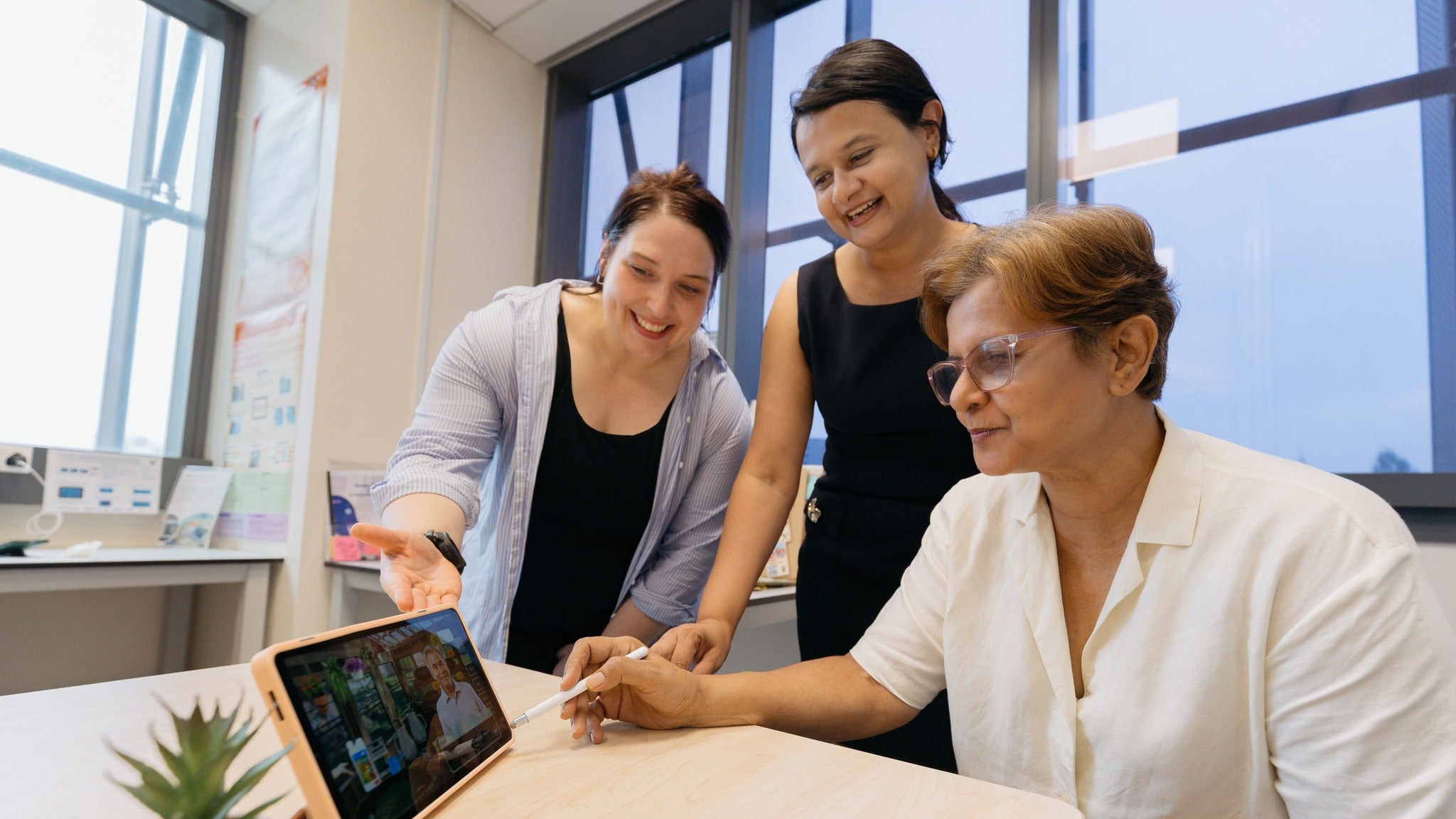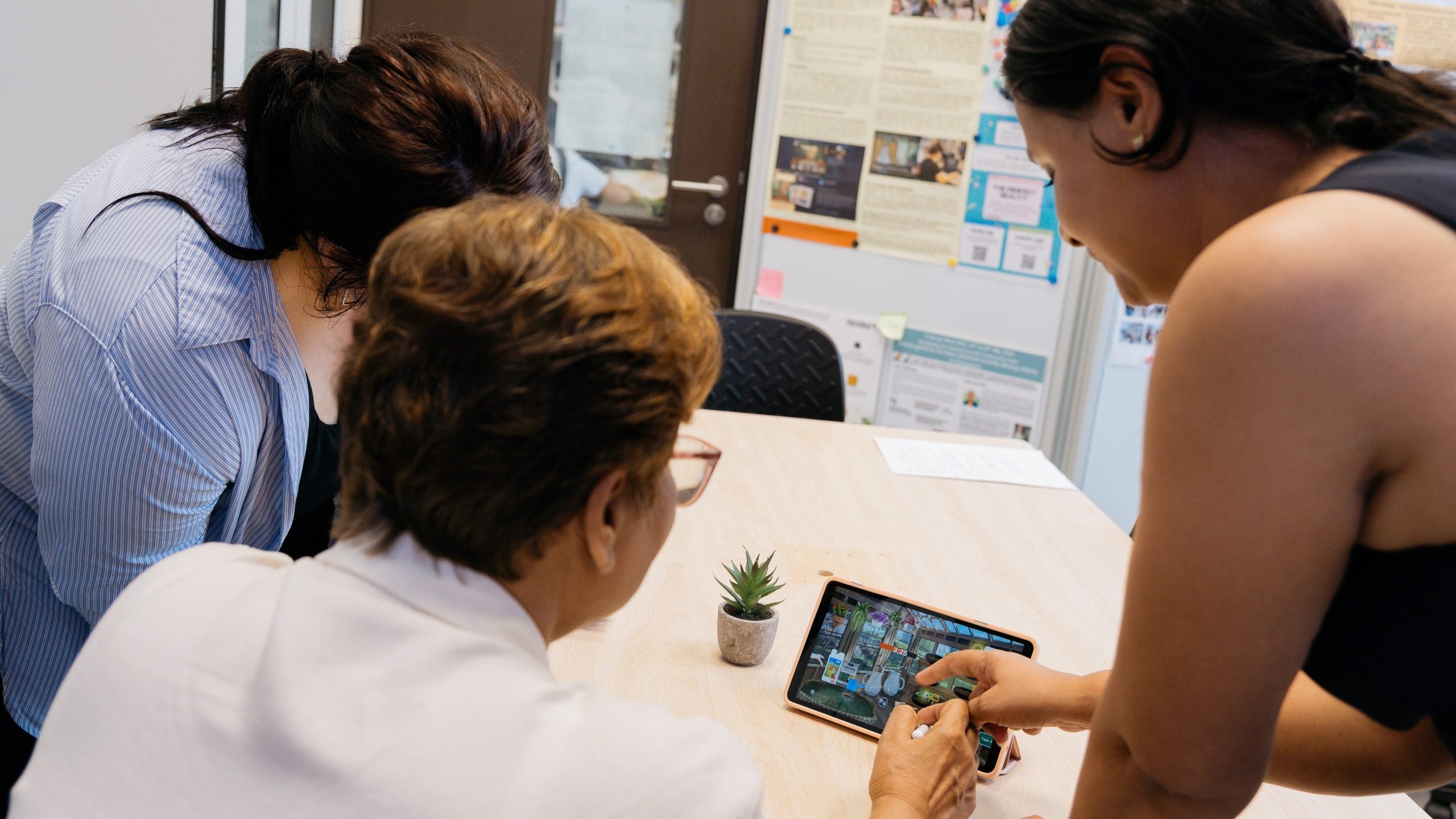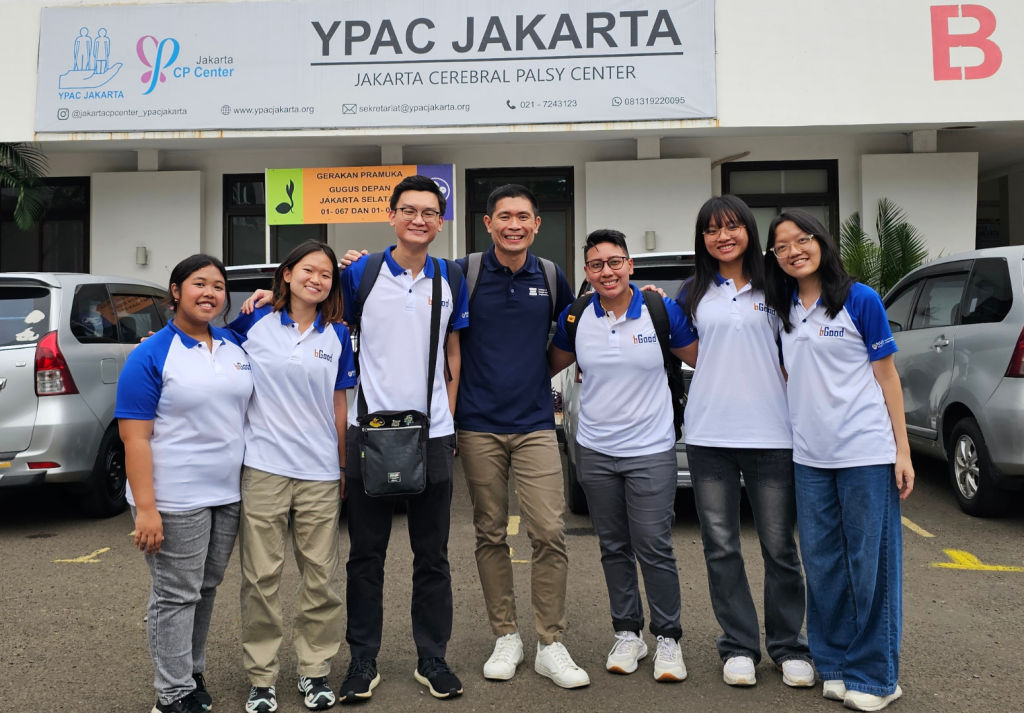
Artificial Intelligence (AI) has emerged as one of the most transformative tools in modern science and technology. To mark AI Appreciation Day 2025, NUS News spotlighted how researchers across the University are applying AI in practical, human-centred ways to improve lives across a range of everyday settings.
One project is CURATE.DTx, co-led by Associate Professor Bina Rai from the Department of Biomedical Engineering at CDE and Dr Alexandria Remus, who is the Head of Digital Therapeutics at both the Institute of Digital Medicine and N.1 Institute for Health (N.1) at NUS.
CURATE.DTx is a digital platform that uses AI to deliver personalised cognitive training and potentially identify early warning signs of cognitive decline in a simple, engaging format. The platform is adapted from a NASA-designed system which simulates real-world tasks to understand the user’s responses. The team designed a gamified experience that challenges seniors to manage four concurrent tasks, such as watering plants, feeding fish or responding to audio cues, within a two-minute session. Each task is designed to train a specific aspect of cognitive function such as attention, memory or coordination.
The crux of CURATE.DTx is how the game adapts in real time to the individual’s performance. Integrating the platform with CURATE.AI, an AI engine originally developed for personalised medicine, enables the system to continuously fine-tune the game’s difficulty level based on how a user performs. If a player completes a round with ease, the AI will gently increase the challenge; if they struggle, it will dial back the complexity. The goal is to keep users engaged at just the right level — not too easy to be boring, not too hard to be frustrating.

Personalised cognitive profile
Unlike most AI systems that rely on large datasets from many people, CURATE.AI uses only the individual’s own data to generate a personalised cognitive profile. This “small data” approach ensures that each person’s cognitive training is tailored to their abilities and progression over time.
“Older adults are not a one-size-fits-all group. CURATE.DTx recognises that even the same person may perform differently from day to day. By using their own performance data to adapt and improve, the system offers training that is both personalised and dynamic,” said Dr Remus, who is also Senior Research Fellow at the Heat and Resilience Performance Centre at the NUS Yong Loo Lin School of Medicine.
As part of her thesis work, final-year Biomedical Engineering undergraduate student Cathlin Theophilus helped to develop the latest adaptation of CURATE.DTx called “Life As A…” through several rounds of community testing with older adults.
“Designed with user-friendliness in mind, the game includes culturally familiar scenarios, like gardening, and intuitive touch controls. Participants receive positive feedback from a friendly virtual character and can earn in-game coins for completing tasks, reinforcing motivation without penalties for mistakes,” said Assoc Prof Rai, who is also a Principal Investigator at the N.1 Institute.
Early usability studies conducted in partnership with public hospitals, the first community engagement hub at the Health District@Queenstown, and BME for Good – an initiative by the Department of Biomedical Engineering at CDE – showed high engagement and willingness to continue playing. Many participants found the game enjoyable, especially when the storyline reflected familiar hobbies. Participants also identified the need for clear audio instructions and simplified interfaces.
Looking ahead, the team aims to refine the game’s mechanics further and test its long-term effectiveness in supporting cognitive health. Eventually, they aim to scale the tool for home use, making preventive cognitive care more accessible and less stigmatised.
Read more about AI innovations across NUS at NUS News.





